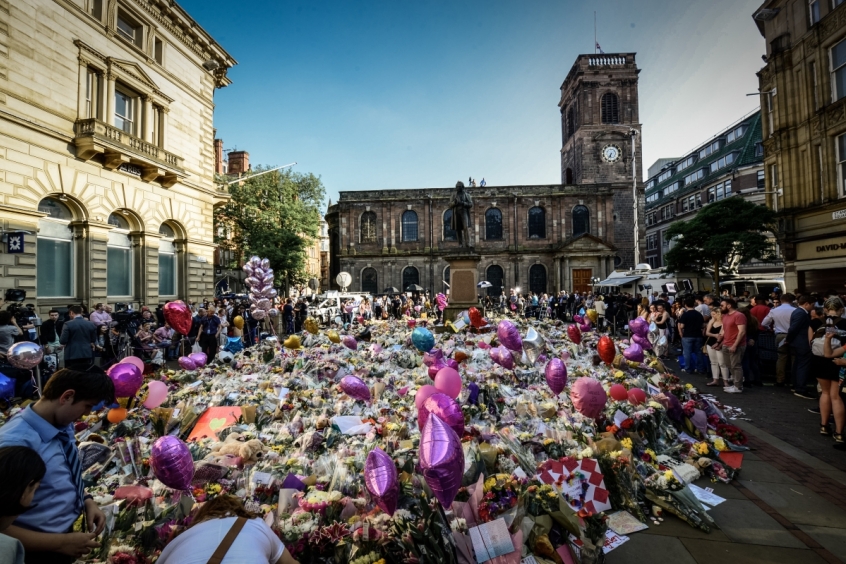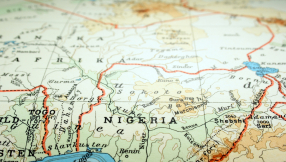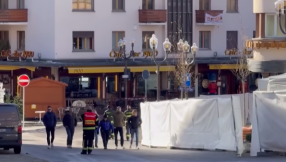
Words provide little consolation for those affected by Salman Abedi's senseless and abhorrent attack on innocent young people in Manchester last week. The same is true in Egypt where a similar tragedy took place only days later. On 26 May 2017 at least 28 people were killed and 23 were injured when masked gunmen opened fire on three vehicles transporting members of a Coptic Christian community in Minya governate.
How do we respond to such atrocities? Only love can win this battle.
His Grace Bishop Angaelos, Britain's leading Egyptian Coptic cleric, provided a statement of mournful love following both attacks. He begins with grief, writing that 'once again, we find ourselves experiencing pain before which words seem insufficient'. It is worth remembering that this is not the first attack of its kind against Coptic Communities. As recently as Palm Sunday, 44 people were killed in suicide bombings at churches in Alexandria and Tante.
He then sends a message to the perpetrators of the crimes which is so counter-cultural that it might even be considered offensive:
'You are loved. The violent and deadly crimes you perpetrate are abhorrent and detestable, but YOU are loved...'
A rallying call to humanity follows,
'...so join me in praying for the brokenness of our world that causes parents to lose their children, children to lose their parents, and humankind to lose the humanity for which it was created.'
As someone with Northern Irish heritage, Angaelos' response reminds me of the faith-filled words of Gordon Wilson which proved to be a watershed moment during the Northern Irish Troubles. Gordon was the father of Marie Wilson, one of 11 people killed in the Enniskillen Remembrance Day bombing by the Provisional IRA on 8 November 1987. Marie was a young nurse and her father held her hand and spoke with her during her last moments of consciousness. He talked of her final moments in a famous BBC interview:
'She held my hand tightly, and gripped me as hard as she could. She said, 'Daddy, I love you very much.' Those were her exact words to me, and those were the last words I ever heard her say.'
To the astonishment of listeners, Wilson went on to add,
'But I bear no ill will. I bear no grudge. Dirty sort of talk is not going to bring her back to life. She was a great wee lassie. She loved her profession. She was a pet. She's dead. She's in heaven and we shall meet again. I will pray for these men tonight and every night.'
Wilson's decision to extend unconditional forgiveness in the face of deep loss was a critical moment in the history of Northern Ireland's Troubles. Tit-for-tat killing, the dehumanisation of the other, had divided a nation. The courageous decision to love was a critical step on the road to healing.
These are two men who have decided that only love can fight hatred. History shows – whether in Northern Ireland or South African truth and reconciliation commissions – that true reconciliation only comes when people embrace this principle.
But this message is not without a cost. What consolation does such a message provide to mourning families? What justice? Love conquering hatred sounds like a nice soundbite, but we should not be naïve about how costly true forgiveness is. Should the murderer of children be the subject of our prayers? Should a father let his daughter's murderer go free? How can our right anger and desire for justice be satiated by such a message? Ongoing civil unrest in South Africa can partly be explained by the fact that the truth and reconciliation commissions failed to provide the full justice and accountability which many were looking for.
One way of satisfying this thirst for justice is found in faith.
A friend of my father was shot outside a church in Belfast while they were both students. My father has since described how his faith provided him the strength to forgive. The belief that God was everlastingly just and would hold people accountable was a message of hope. To those of us who have been brought up in liberal suburbia and have never been truly wronged, the idea of accountability before God sounds unnecessary and foreboding. For those that see their friends murdered in cold blood, it provides a liberating consolation.
This is Bishop Angaelos' statement more fully expressed:
You are loved. The violent and deadly crimes you perpetrate are abhorrent and detestable, but YOU are loved.
You are loved by God, your Creator, for He created you in His Image and according to His Likeness, and placed you on this earth for much greater things, according to His plan for all humankind. You are loved by me and millions like me, not because of what you do, but what you are capable of as that wonderful creation of God, Who has created us with a shared humanity. You are loved by me and millions like me because I, and we, believe in transformation.
Transformation is core to the Christian message for throughout history we have seen many transformed from being those who persecuted Christ Himself and Christians, to those who went on to live with grace. We believe in transformation because, on a daily basis, we are personally transformed from a life of human weakness and sinfulness to a life of power and righteousness. We believe in transformation because the whole message of the Cross and Resurrection of our Lord Jesus Christ is to take humanity from the bonds of sin and death to a liberation in goodness and everlasting life. Our world is certainly suffering from the brokenness of our humanity, but it is our responsibility, personally and collectively, to encourage and inspire ourselves, and all those whom we meet along our path, to a life of virtue and holiness, and the love and forgiveness of all.
For Gordon Wilson, my father and Bishop Angaelos, it is love strengthened by faith which provides hope. It is love strengthened by faith which provides knowledge that there will be justice. And it is love strengthened by faith which triumphs over hate. Let us pray for more people like them in our fear-filled days because it is only with that kind of love that we can win this battle.
Johnny Patterson is a human rights advocate based in London who specialises in freedom of religion or belief. Find him on twitter @J_Pat94.













